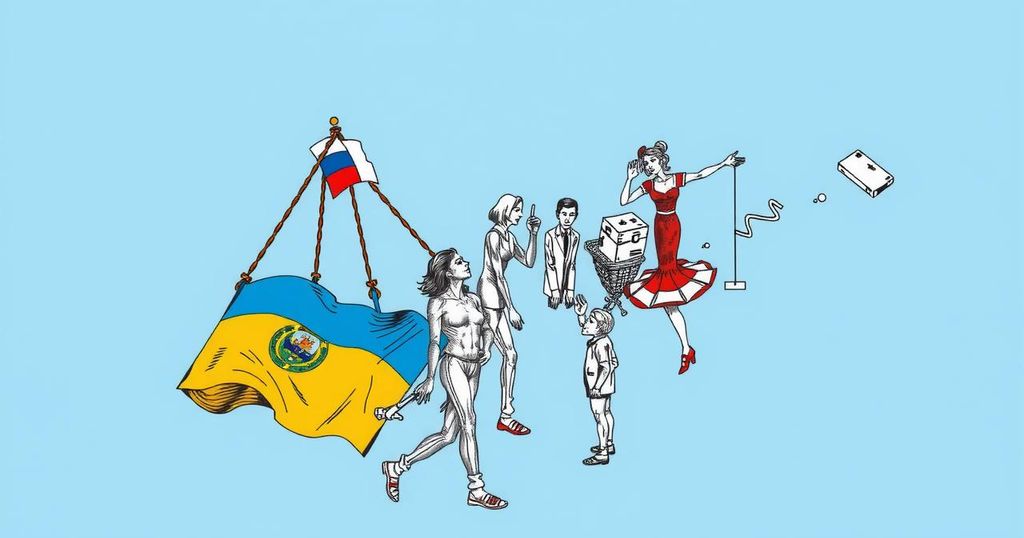Concerns Over Voter Apathy in Uruguay’s Recent Presidential Elections
The recent presidential elections in Uruguay lacked excitement and engagement, particularly among young voters. No candidate secured a majority, signaling potential apathy due to pressing socioeconomic challenges faced by the youth. Concerns about governance and political satisfaction are rising, necessitating urgent attention to rejuvenate democratic participation and address the needs of future generations.
In a year characterized by notable elections, Uruguay’s recent presidential vote appeared to barely register on the global radar. This unremarkable electoral atmosphere can be attributed to uninspiring candidates and their ineffective strategies to engage undecided voters. Ultimately, no candidate achieved a majority, prompting citizens to prepare for yet another round of uninspiring political rhetoric leading to a decisive runoff on Sunday.
Uruguay’s political landscape is typically vibrant, marked by colorful displays and passionate public debates. The legacy of overcoming decades of dictatorship has instilled a strong commitment to democracy and political stability. However, the function of democracy appears to be at risk as young people increasingly express dissatisfaction, yearning for governance that directly addresses their pressing challenges. The recent Latinobarómetro survey revealed that 38 percent of young respondents would support relinquishing democratic processes for more effective governance options.
This disenchantment stems from high youth unemployment rates (26 percent in 2023), academic struggles, food insecurity, and elevated incarceration rates among the youth population. Poverty affects one in five children and adolescents, exacerbated by the psychological toll of the COVID-19 pandemic, which has driven suicides to become a leading cause of death among young individuals.
Moreover, apathy among these young voters is mirrored by disappointment among older generations, who are equally disillusioned by the government’s failure to address childhood poverty, crime, and corruption. Although inflation rates have eased, issues such as rising public debt and notable corruption scandals within President Luis Lacalle Pou’s administration continue to fuel dissatisfaction.
In conversations with undecided young voters ahead of the elections, many expressed feelings of alienation from the candidates in the runoff, namely Yamandú Orsi of the leftist Broad Front and Álvaro Delgado of the National Party, suggesting a disconnect between the electorate and those vying for leadership.
Uruguay has historically been a stable democracy in Latin America, characterized by active political engagement and a vibrant electoral culture. The nation has a population of 3.4 million and has pridefully navigated a peaceful transition between political parties since overcoming a dictatorial regime in the late 20th century. However, the current political climate reflects a concerning trend of voter apathy, particularly among the youth, stemming from socioeconomic difficulties. With young voters feeling increasingly disenfranchised, there is a growing fear that the foundations of Uruguay’s democracy could be jeopardized if these issues remain unaddressed.
The lackluster nature of the recent Uruguayan presidential elections raises critical concerns about the state of democracy in the country. With significant portions of the youth disillusioned and yearning for direct solutions to their problems, it is essential that future political leaders prioritize engagement and responsiveness. Failure to do so may entrench political apathy and undermine one of Latin America’s most stable democracies, a precarious outcome given the region’s overall political volatility.
Original Source: www.nytimes.com




Post Comment